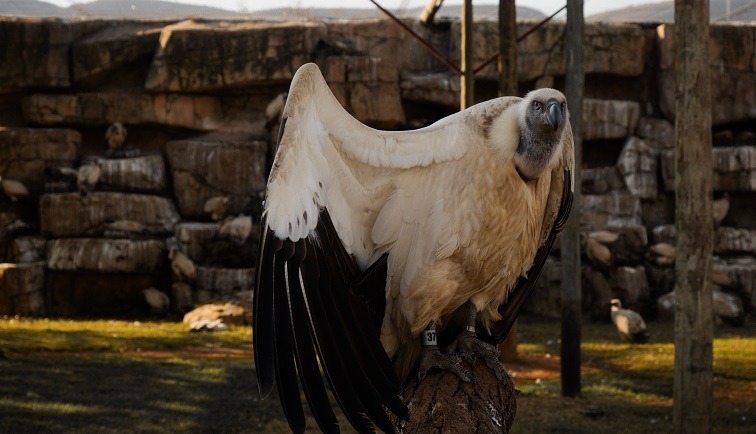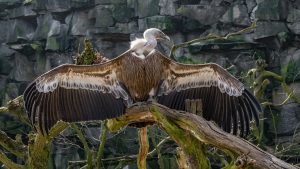One of the largest Vulture conservation projects is under way in the Eastern Cape.
The project involved the moving of 160 Cape and African White-Backed vultures from the North West province to their new home at the Shamwari Private game reserve near Gqeberha.
This is the largest relocation of vultures ever undertaken in South Africa. This the first phase of a two-year relocation, rehabilitation and breeding programme for these birds of prey.
GALLERY: New home for vultures at Shamwari:
This new home will be permanent for some of the birds who cannot be released as they will not survive in the wild. The plan is to breed with them and their offspring will then be released back into the wild at the appropriate time.
The project aims to ensure the future of indigenous vulture species. The vulture conservation group Vulpro is one of the main partners in the project. The birds all come from their facility at Hartebeespoort. The birds will live in three different enclosures set up at Shamwari. Vulpro CEO Kerri Wolter says the idea is to maintain an efficient eco-system in which vultures play a critical role.
“Vulpro at Shamwari offers a safe, well-balanced ecosystem for both our in-situ and ex-situ conservation programmes and provides financial support and sustainability. Importantly it limits risk because the largest captive breeding population of vultures isn’t concentrated in one location. In addition, Shamwari’s anti-poaching unit provides good security.”
The future Cape Vulture offspring will be released in the Shamwari private game reserve and the birds occur naturally in many areas of the Eastern Cape. They will be fitted with tracking devices to monitor the birds as they move throughout the province. Shamwari game reserve CEO, Joe Cloete, says this is a magnificent milestone for conservation.
” The Shamwari conservation project began in 1992 when it started trying to reverse nearly 300 years of human impact by reintroducing elephant, white rhino and hippo in 1992. Black rhino and buffalo followed in 1993/4. Cheetah, lion and brown hyena were brought back in 2000 and serval and leopard the next year, making Shamwari the first big-five game reserve in the Eastern Cape. Vultures play a vital role in maintaining a healthy ecosystem, are part of our natural heritage and are severely threatened. I cannot overstate how reintroducing Cape Vultures is a critical step in the continuing evolution of our conservation journey and enhancing the ecological importance of the reserve.”
The Cape vultures will receive special attention as they are the most endangered of the vultures being rehabilitated here. Many of the birds are flightless due to injuries sustained because of powerlines and poisoning. Shamwari game reserve veterinarian Dr Johan Joubert says a favourable ecosystem is critical to the survival of these birds.
“So, the plan is to ensure that we monitor that because the birds that are here are semi-flightless and some don’t fly so we want to ensure and run tests on them before they are released in their natural habitat. We’ve also done an environmental assessment on how the Eastern Cape is the ideal for these birds.”
Phase two of the relocation programme will see non-releasable breeding pairs of Lappet-faced, White-headed and Hooded Vultures and some additional White-backed Vultures coming to the Eastern Cape.
The offspring of these birds will then return to the North West province to be released into areas identified by National Vulture Breeding Steering Committee where the different species need bolstering.



